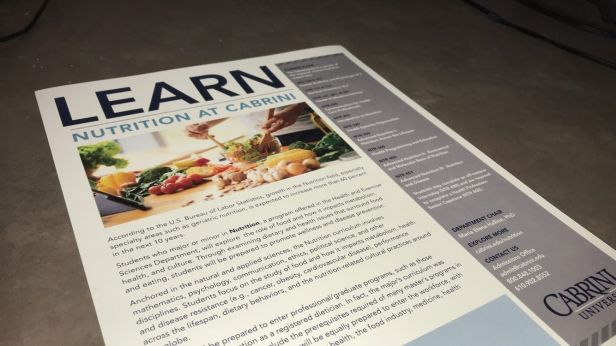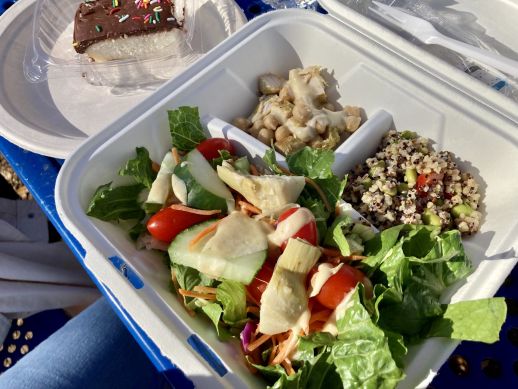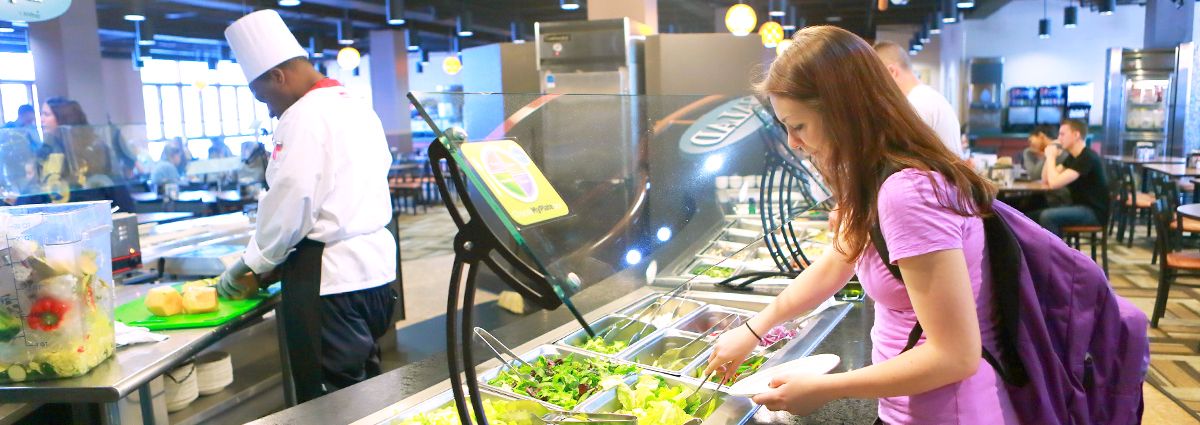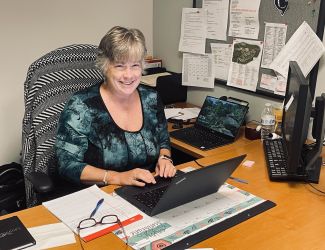“Food brings people together,” Layal Srour, senior digital communications and social media major, said.
However, Cabrini offers less than five academic courses on nutrition and most of them are limited to health science majors and nutrition minors. There are no current clubs specifically for food justice, nutrition or cooking.
“When I came to Cabrini five years ago there was a plan in place to develop a new academic major in nutrition,” Dr. Richard Thompson, Dean of Arts and Sciences, said. “The program never gained any traction with students; the primary faculty member with the expertise and the desire to lead this has left the university.”
The thoughts around nutrition and food courses from Cabrini professors in varying majors has been filled with confusion and uncertainty. Cabrini University professors of health science have declined interviews on this subject.
“The food scene at Cabrini does not seem to be talked about in classes, but when brought up in conversation, there seems to be concerns and interests about the variety of food Cabrini offers,” Layal Srour said.
Why doesn’t Cabrini value food studies and nutrition more?
As a school founded on the principles of “academic excellence, leadership development and a commitment to social justice,” food education is not valued to those respective values.
Food justice is social justice. Food-focused courses aren’t just for those interested in food careers- nutrition and overall culinary knowledge is important for everyone.

Photo by Matthew Santangelo.
Srour agrees: “It can also tie in to Cabrini’s mission of education and social justice by learning more about food insecurity and the importance of diverse cultures and access to food.”
“I wish there were cooking classes,” Rachel Kalani, sophomore elementary education major, said. “Whether that would be a full-blown credit class or just a series of activities hosted on campus, it would be really great for people who are just now moving out on their own and can’t rely on ramen for the rest of their lives.”
Having culinary-specific courses could be a positive attribute because it would give students a different way of learning through sensory, hands-on experiences.
“As someone who is interested in pursuing a career in the food industry, specifically food journalism, food photography and food marketing,” Srour said. “I do wish Cabrini offered a variety of nutrition and culinary classes.”
While there have been clubs in the past related to food insecurity and advocacy, like the Food Recovery Network, they were all short-lived.
“Even for people who cook all the time, learning to make a new food could be so fun- especially if there’s a focus on foods of different cultures,” Kalani said.

Kalani and Srour believe that the misconception around campus that students are not interested in food is not accurate. “Based on what I have heard from many students, they do care about food,” Srour said.
“Although Cabrini may not have specific food classes to take, there are still classes to take that will help you in your food journey,” Srour said. “Getting those skills would help you build the experience and knowledge you need that you can expand and practice outside of class and use those skills towards your [food] journey.”
Per the Center for Ecoliteracy, “a food systems curriculum promotes understanding about where food comes from and the natural cycles that produce it.”
While Cabrini educators have not given direct explanations towards the importance of food studies in the curriculum, students still have hope that there could be opportunities in the future.
“As with all such courses, it would depend on the level of student interest,” Thompson said. “I would suggest that students interested in this area reach out to [Dr. Gairola, chair of the health sciences department] to discuss possibilities.”





